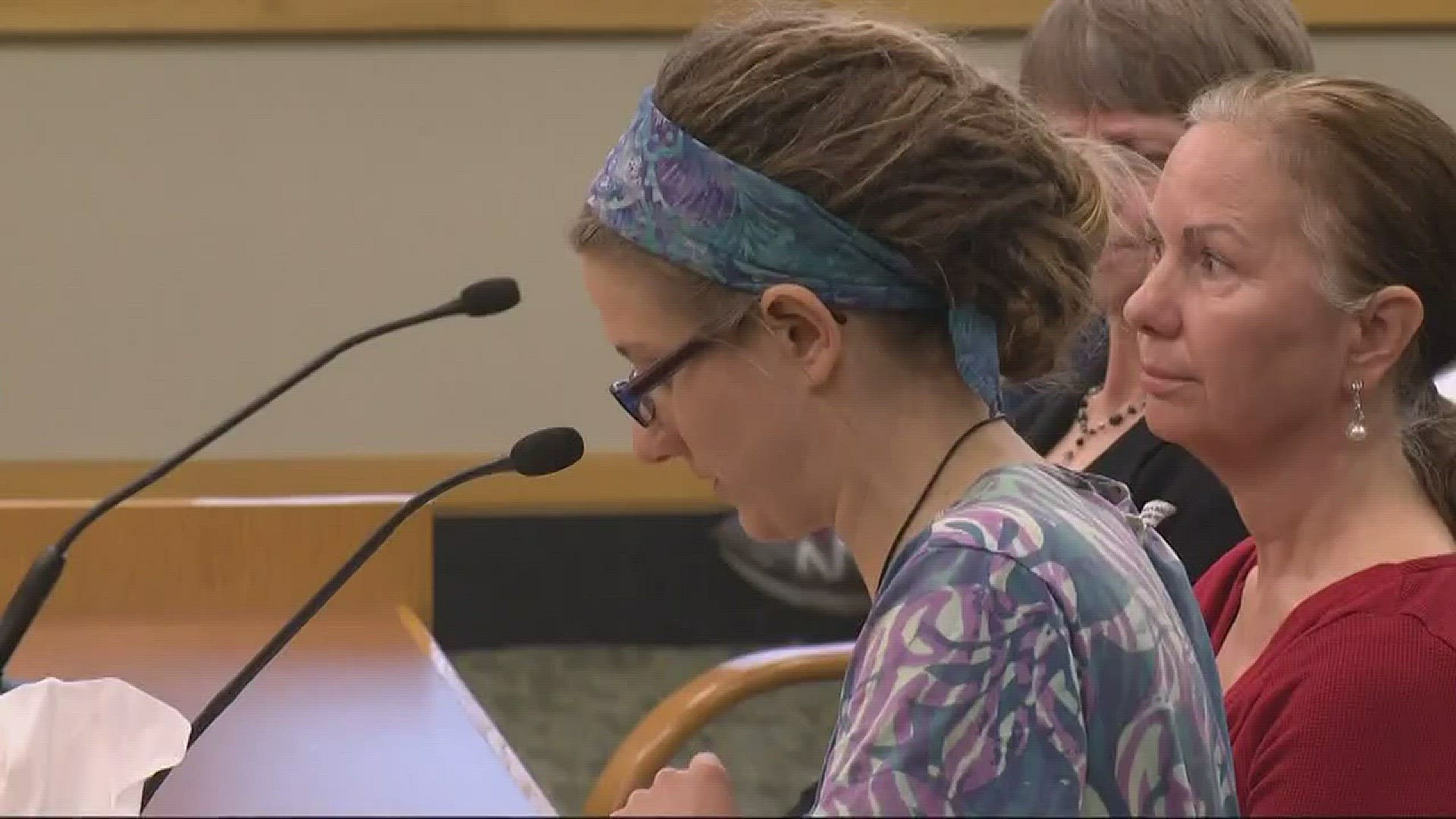Renters, landlords, and community members turned out in droves to passionately advocate for — and speak out against — a bill that would bar no cause evictions and lift a statewide ban on rent control.
More than 100 people filled the public hearing room on Wednesday at the capitol. Dozens addressed the Senate Committee on Human Services, and almost 400 people submitted written testimony.
House Bill 2004 was part of the legislative package designed to address Oregon's rental and housing crisis. Some proposed bills, like HB 2006, died in committee, but HB 2004 passed through the Oregon House in April with a 31-27 vote.

He and other landlords might be motivated to preemptively increase rents before the bill goes into effect, and investors could lose interest in building rental units.
"(It) could be devastating long-term," he said.
Michael Feves and his family manage more than 600 units in the Portland area. He said the no-cause eviction notice is a valuable tool for helping landlords keep properties safe and secure. The evictions are typically used to remove tenants who pose a threat to health and safety of others, are disruptive or ones who violate the rental agreement.
Housing providers will be less likely to take a chance on some housing applicants if the no-cause eviction tool is removed, Feves added.
Supporters of the bill said it would prevent landlords from exploiting residents by threatening them with no-cause evictions. It could also keep rents from increasing repeatedly or at large increments by removing a statewide prohibition on local rent stabilization ordinances for residential rental units.
Sen. Laurie Monnes Anderson, D-Gresham, a chief sponsor of the bill, said the protections are critical to the 40 percent of Oregonians who are renters.
"We really need a safe and stable and affordable place to call home," she said. "Today, far too many Oregonians are experiencing extreme rent increases and housing instability."
Patti Jay, a veteran of the Oregon National Guard living in Milwaukie, was recovering from a surgery in March 2016, when she went outside to find an eviction notice attached to her door.
"That was a moment of shock and desperation," she said.
She found no explanation for the eviction, but she had recently requested repairs caused by black mold in her bathroom. Jay eventually found a place nearby — for $400 more per month.
Her story is just one of many experienced by Oregonians, she said.
"The details might be different, but the feeling is the same — the feeling of fear, intimidation and the freedom that has been taken away from us," Jay said.
Rep. Diego Hernandez, D-Portland, described meeting people at a recent town hall who were facing retaliatory evictions and rent increases totaling hundreds of dollars.
"The desperation... was heartbreaking," he said.
The bill has been amended to allow landlords to use no-cause evictions during the first six months of occupancy, to screen out bad tenants.
After six months, a landlord could terminate a month-to-month tenancy only for cause.
It would allow landlords to evict tenants for business or personal reasons such as needing to make repairs or renovations, selling the unit to someone who plans to live in it, or when a landlord or family member plans to move into the unit.
In those cases, landlords would have to give a 90-day notice and provide one month’s rent for moving expenses.
Small landlords with four or fewer units would not have to pay relocation costs.
The bill also would require municipalities using rent stabilization to ensure a fair rate of return for landlords, set up a process for landlords to request an exception to allow for a fair rate of return, and exempt any new residential development for at least five years.
Richard Wilson, a renter in Woodburn, held up his eviction notice and showed it to the committee. He said his landlord told him the possibility of HB 2004 was the "last straw." The landlord decided to sell the units and move out of the state before the bill took effect. Now, he is frantically looking for a new home.
"Please, please, please, I beg of you: Do the right thing and kill this well-meaning but horrendous bill before the hardworking— and I might add voting — folks of Oregon are harmed further," Wilson said.
Beth Kellan, a Portland landlord and Realtor, spoke out in support of the bill. She said that landlords should be able to make a profit, but, she added, no-cause evictions are unnecessary and they are harmful. Existing legal mechanisms like for-cause evictions already allow landlords to evict bad tenants.
"We also have a responsibility to our tenants to be fair and compassionate," Kellan said.
It isn't a good landlord versus bad tenant issue or a bad landlord versus good tenant issue, she said; It is housing issue, a community issue, an affordability issue and a homelessness issue.
She and other supporters of the bill urged lawmakers to take action.
Low vacancy rates are widespread throughout Oregon, and rents are on the rise. Monnes Anderson said help is sorely needed for the four in 10 Oregonians that are renters.
"We are in a crisis, and we do need to do something," she said.
For questions, comments and news tips, email reporter Whitney Woodworth at wmwoodwort@statesmanjournal.com, call 503-399-6884 or follow on Twitter @wmwoodworth

